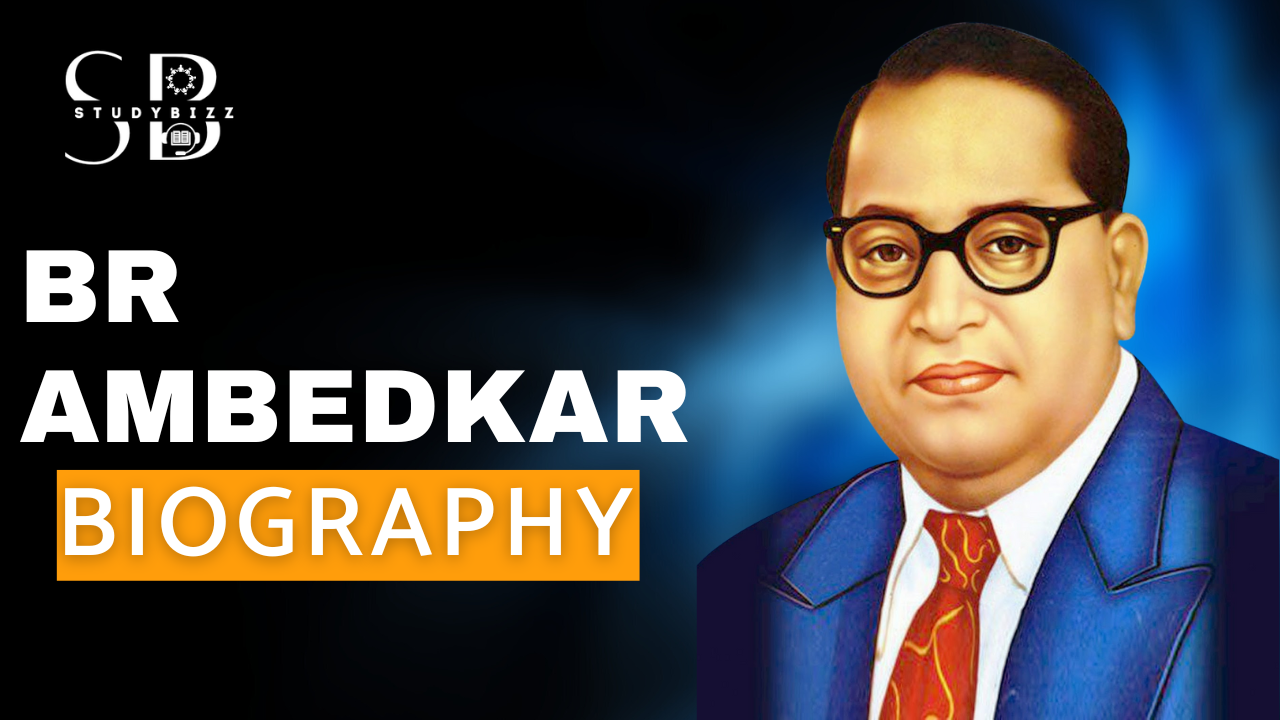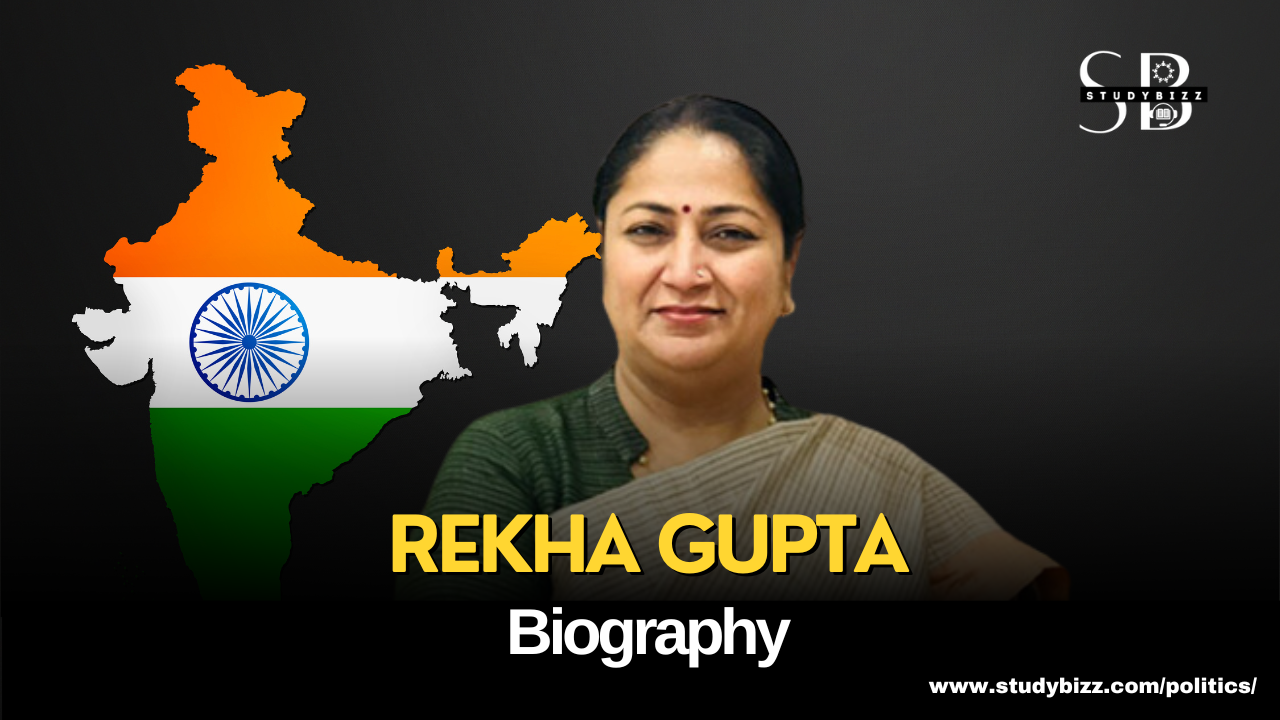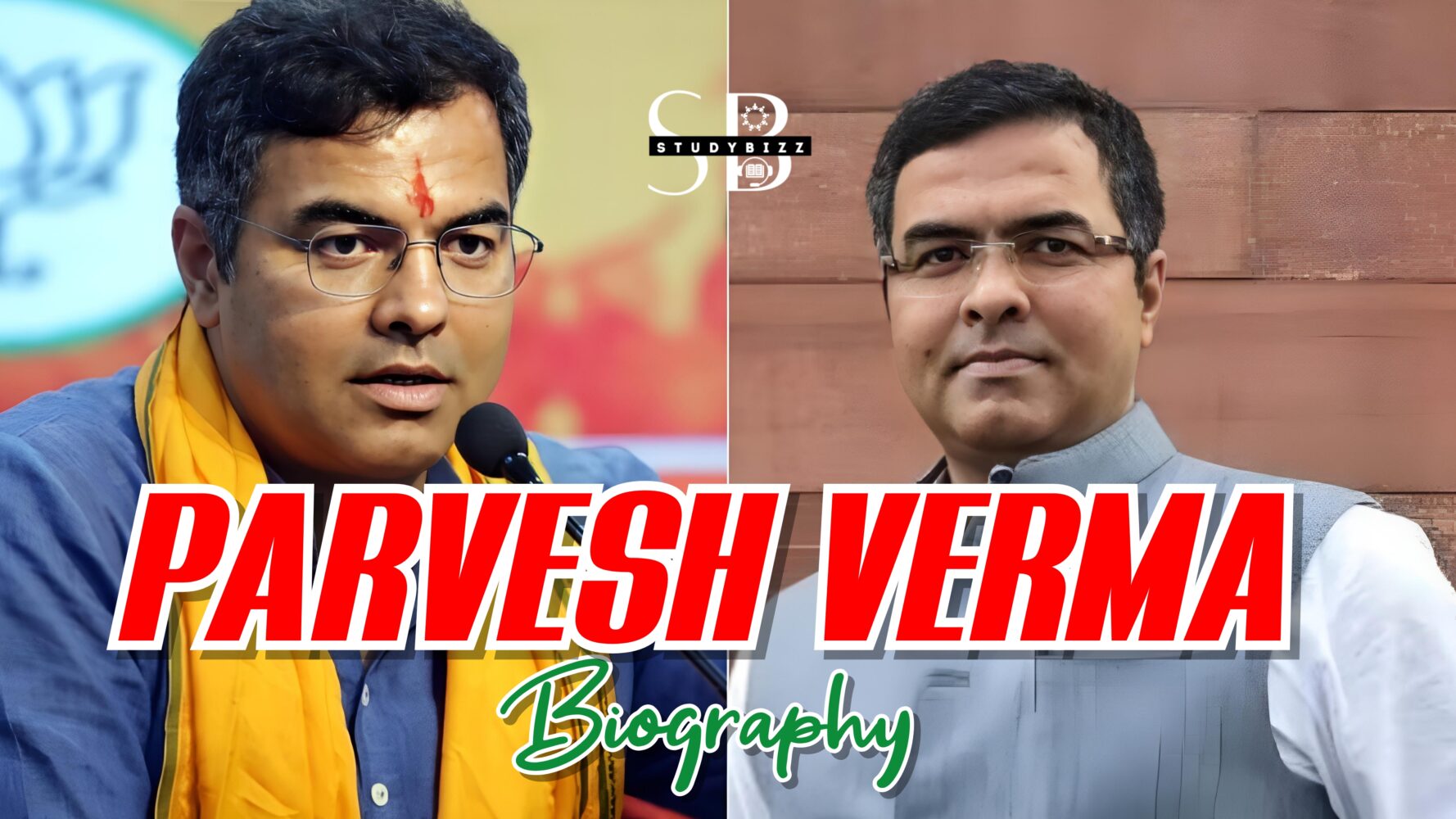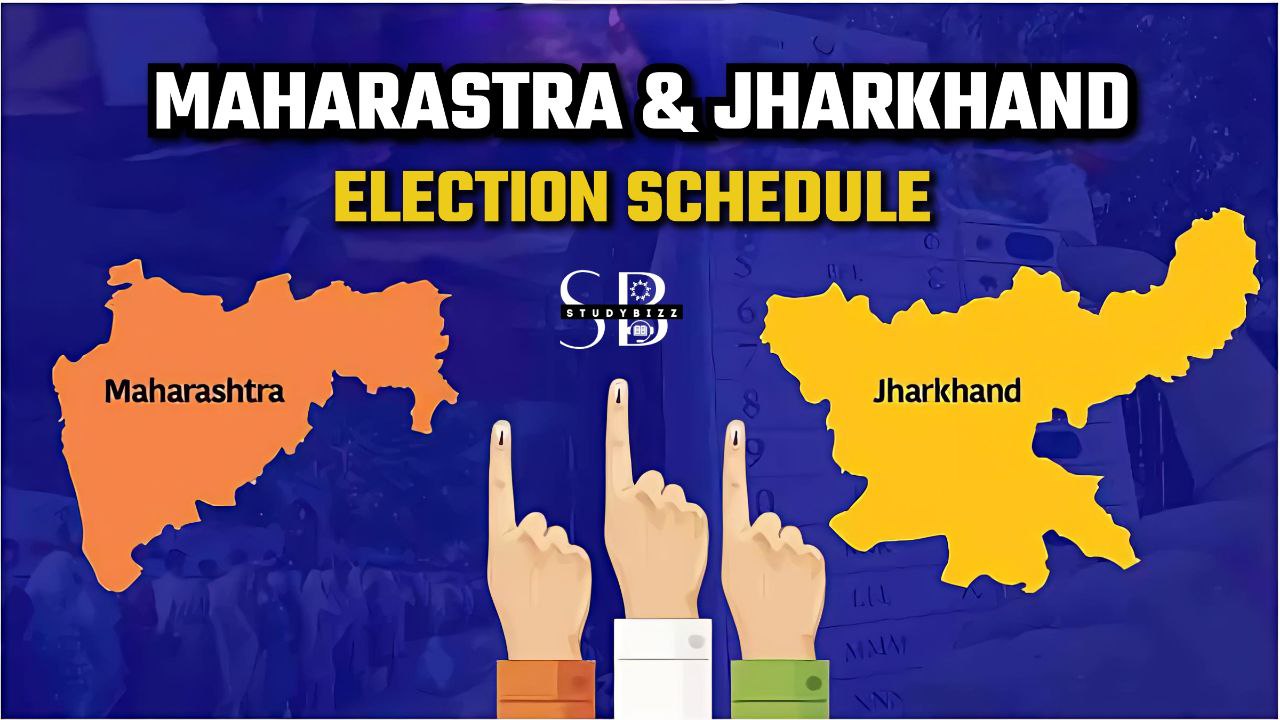B. R. Ambedkar Biography: Bhimrao Ramji Ambedkar, also known as B.R. Ambedkar, was born in Mhow, India, on April 14, 1891. Every year, April 14 is designated as Ambedkar Jayanti. Look into his early years, education, political career, the Poona Pact, books, and other aspects of his life.
B.R. Ambedkar, popularly known as Babasaheb was an Indian jurist, economist, politician, and social reformer. He chaired the Drafting Committee of the Constituent Assembly and was also the first Minister for Law and Justice in India.

B. R. Ambedkar Biography
| Full name | Bhimrao Ramji Ambedkar |
| Date of birth | 14 April 1891 |
| Place of Birth | Mhow, India |
| Died | 6 December 1956 |
| Place of Death | New Delhi, India |
| Resting place | Chaitya Bhoomi, Mumbai, India |
| Profession | Jurist, economist, academic, politician, social reformer, and writer |
| Father name | Ramji Maloji Sakpal |
| Mother name | Bhimabai Sakpal |
| Married | Yes |
| Spouse | Ramabai Ambedkar (m. 1906; died 1935) Savita Ambedkar (m. 1948) |
| Children | Yashwant |
| Alma mater | University of Mumbai (B.A., M.A.) Columbia University (M.A., PhD) London School of Economics (M.Sc., D.Sc.) Gray’s Inn (Barrister-at-Law) |
| Nationality | Indian |
| Political party | Independent Labour Party Scheduled Castes Federation |
| Other political affiliations | Republican Party of India |
| Awards | Bharat Ratna (posthumously in 1990) |
| Known for or Famous for | Dalit rights movement Heading committee drafting Constitution of India Dalit Buddhist movement |

Early Life and Education:
Ambedkar was born on April 14, 1891, in Mhow (now Dr. Ambedkar Nagar), Madhya Pradesh, into a Mahar family, considered untouchables in the rigid caste hierarchy of India. Despite facing discrimination and hardship throughout his childhood, Ambedkar excelled in his studies. He obtained his Bachelor’s degree from Bombay University and even went on to earn a doctoral degree from Columbia University in the United States.

Fighting for Equality:
Ambedkar returned to India determined to fight against the deeply entrenched caste system. He faced numerous challenges, including social boycotts, physical attacks, and denial of basic rights. Yet, he persevered, founding the Independent Labour Party and campaigning for the upliftment of Dalits (formerly known as untouchables).
Political Contributions:
Ambedkar’s political acumen and sharp intellect led him to play a pivotal role in shaping India’s political landscape. He served as the Labour Member in the Viceroy’s Executive Council, chaired the drafting committee of the Indian Constitution, and was the first Law Minister of independent India.
The Indian Constitution:
Ambedkar is most remembered for his monumental contribution to the Indian Constitution. He meticulously drafted the document, ensuring safeguards against discrimination and guaranteeing fundamental rights for all citizens, regardless of caste, religion, or gender. His vision for a just and equitable society continues to inspire generations of Indians.
Personal Life:
Ambedkar married twice. His first wife, Ramabai, passed away during their marriage. He later married Sharada Kabir, who became known as Maisaheb Ambedkar and was a staunch supporter of his work. He did not have any biological children but adopted his nephew Yashwant Ambedkar, who carried forward his legacy.
Legacy:
B. R. Ambedkar’s legacy transcends generations. He is revered as a champion of Dalit rights and a symbol of hope for all marginalized communities. His unwavering commitment to equality and social justice continues to inspire millions and remains a guiding light for India’s ongoing quest for a truly just and equitable society.
B. R. Ambedkar Wikipedia
| wikipedia | Click here |




Leave a Reply